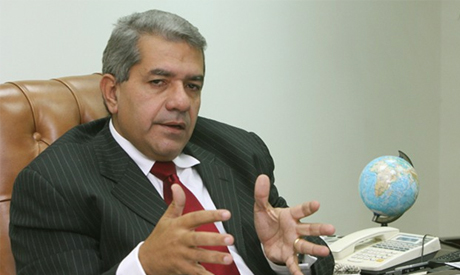 Despite major challenges, the MENA region can capitalize on the opportunities provided by the strengthening of global economy and provide a better, more equitable, and prosperous future for its citizens, says a report released by the International Monetary Fund (IMF).
Despite major challenges, the MENA region can capitalize on the opportunities provided by the strengthening of global economy and provide a better, more equitable, and prosperous future for its citizens, says a report released by the International Monetary Fund (IMF).
The region’s highly educated and tech-savvy youth have tremendous potential to spur growth if given opportunities and jobs, adds the document titled: “Opportunity for All: Promoting Growth and Inclusiveness in the Middle East and North Africa”.
According to the authors of the report, the region’s women are another huge source of untapped potential. Reducing the gender gap in labor force participation to double (rather than triple) the average for emerging market and developing economies would have doubled GDP growth in MENA over the past decade—a gain of US$1 trillion in cumulative output.
These estimates hint at a bright prosperous future that could be ignited through policy reforms that promote higher, more inclusive growth, says the IMF report, recalling the meeting held in Marrakech in January 2018 to discuss the region countries’ experiences in pursuing policies aimed at promoting “opportunity for all” and ensuring that no one is left behind.
The IMF report paves the way for further operationalizing the inclusive growth agenda by exploring the key issues the MENA region faces in its efforts to promote inclusive growth.
Given that many reforms are already underway in the region, the IMF document seeks to chart a future course for policies to enhance inclusive growth, focusing on key areas where faster and deeper progress is needed.
It also underscores the need for policies to be tailored to country-specific circumstances since “one size” cannot fit all, especially in a region as diverse as MENA.
The IMF report explains the challenges countries in the region must address to create more jobs, lift growth, and make growth inclusive. It highlights various obstacles such as the insufficient level of private-sector job creation, the small size of the private sector, and the severe obstacles the region’s large pool of young people and women face in finding jobs.
It makes the case for the key policy priorities to enable private sector firms and SMEs grow and create the jobs necessary to employ the region’s youth.
It calls for the promotion of trade and technology to generate a large internal regional market to be better positioned to compete internationally in the face of rapid technological progress that is fundamentally changing markets.
The IMF report stresses the importance of adopting comprehensive policies to improve skills, flexibility, and employability of workers in the face of technological advances (such as artificial intelligence) that are changing the nature of work.
The paper also proposes several policy priorities aimed at broadening access to opportunity. These include improvements in governance, expansion of access to finance and support policies enabling groups like youth, women, refugees, and rural populations overcome the obstacles they face.


